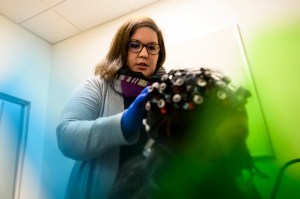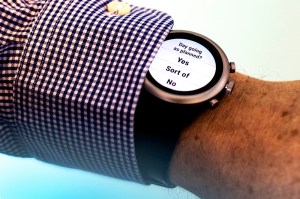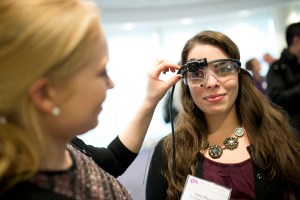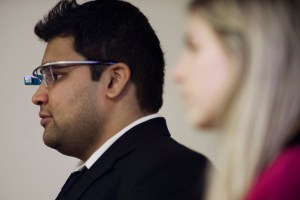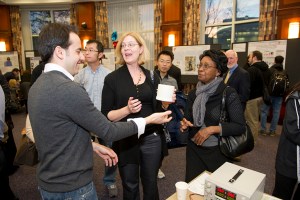
Stephen
Intille
Associate Professor of Computer and Information Science and Health Sciences
Stephen Intille in the Press

A.I. Home Fitness Machines Push You Past Your Limits
Adding A.I. to a workout might sound overly complex, but it just means “using a specific data set to map incoming data,” said Stephen Intille, Ph.D., an associate professor at Northeastern University specializing in health tech.

Apparently faulty app in Iowa voting is a software developer’s worst nightmare
“Until you deploy something in the actual situation, there’s always the possibility that no matter how the designers tested it, there could be something that they didn’t anticipate that creates a problem,” said Stephen S. Intille, a professor at Northeastern University who teaches about human-computer interactions.
The Verge
Collective Sweat
Now that people are used to finding self-care at the tap of a touchscreen, the convenience of connected fitness machines have also made them more attractive over the past few years, says Stephen Intille, an associate professor at Northeastern University specializing in health technology.
The Verge
End of watch
Stephen Intille, an associate professor at Northeastern University who studies health technology, has run studies on sensor systems that connect to mobile phones to track movement. One of the studies he’s co-authored is specifically about how people’s intention to exercise connects with whether they do, in fact, work out.
Nature.com
Mobile data: Made to measure
Any effort to establish standards must address two critical questions. How accurate are the readings from these devices? And what exactly is being measured? Today’s fitness trackers are designed to tell users whether they have walked more this week than last week, say, not to collect laboratory-quality measurements. “What they know is general movements, which […]
Boston Magazine
Northeastern class asks students to invent new healthcare tools
In a class offered at Northeastern University this fall, the required materials go far beyond textbooks: Students are tasked with using cutting-edge technologies such as Google Glass and smart watches to improve healthcare. The class, offered through Northeastern’s Personal Health Informatics program, is open to undergraduate, graduate, and Ph.D. students from a variety of disciplines. Students are […]
Campus Technology
Exploring new frontiers with Google Glass
The precedent for teaching students to build applications for wearable technology doesn’t exist. “There’s no textbook, ” said Rupal Patel, an associate professor in Northeastern University’s Department of Speech Language Pathology and Audiology. “Building [wearable] technology for health issues is a whole new area.” There isn’t even a reliable Google Glass manual. “The devices are […]

Caregiving goes digital – and lets Boomers age in place
“There’s a visceral reaction many people have to being monitored,” says Stephen Intille, associate professor at Northeastern University’s College of Computer and Information Sciences and a leading researcher in the field of personal health informatics. “We need to stay away from stigmatizing these innovations. The better way to think of them is like advanced answering […]

Northeastern team puts patients first in health tech
Matthew Goodwin, an assistant professor at Northeastern University, is trying to better understand their world by carefully tracking the boys’ movements and their environment. He has the boys wear sensors on their ankles and wrists that measure arousal levels, while cameras mounted on the walls record activities in the classroom, with the goal of finding […]

Boston Globe: Northeastern team puts patients first in health tech
Sometimes without warning, one of the autistic students in a classroom at the Center for Discovery will lose control. He will scream and cry. Throw things. Bang his head against the wall. The six adolescent boys in this Monticello, N.Y., classroom, some of the hardest-to-handle students in New York State, cannot explain what is upsetting […]

